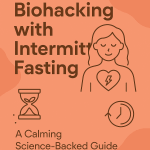The world of wellness is undergoing a remarkable transformation, thanks to artificial intelligence (AI). From smart health monitoring devices to AI-driven fitness and nutrition guidance, technology is reshaping how we approach personal well-being. AI’s ability to analyze vast amounts of health data, personalize recommendations, and enhance early disease detection is revolutionizing the way individuals engage with their health. In this deep dive, we’ll explore how AI is driving the next frontier in wellness, optimizing everything from fitness and nutrition to mental health and remote diagnostics.
The Rise of AI in Personal Health
AI in personal health is no longer just a futuristic concept—it’s a reality reshaping healthcare experiences. Machine learning algorithms are integrated into apps, wearables, and health systems, helping users track key health indicators, predict risks, and optimize wellness strategies. The power of AI lies in its ability to make sense of an overwhelming amount of data—turning numbers into actionable insights for everyday well-being.
AI-Powered Health Monitoring
Wearable technology has taken center stage in health tracking. Devices like smartwatches and fitness trackers powered by AI continuously monitor heart rate, blood oxygen levels, sleep patterns, and stress indicators. These insights provide real-time feedback, alerting users to potential health concerns and allowing them to make proactive lifestyle adjustments.
Beyond basic tracking, AI-enabled wearables are moving toward predictive healthcare. For instance, AI can detect irregular heart rhythms and warn users of potential cardiovascular risks, giving them the opportunity to seek medical attention before symptoms manifest. The combination of AI and biometric sensors enhances health monitoring, making early prevention possible rather than just reactive treatment.
Personalized Wellness Recommendations
One of AI’s most powerful capabilities is personalization. Instead of generic health advice, AI tailors recommendations based on individual needs, behaviors, and genetic predispositions.
AI in Fitness and Performance Optimization
Advanced AI-driven fitness apps analyze movement patterns, suggest workouts tailored to one’s body composition, and adjust intensity based on performance metrics. Whether you’re a professional athlete or a beginner looking to get in shape, AI fine-tunes fitness routines, reducing the risk of injury and improving efficiency.
Virtual personal trainers, powered by AI, enhance user experience by providing adaptive workout plans. Apps like Freeletics and MyFitnessPal integrate AI-driven feedback loops that adjust based on user progress, ensuring workouts are optimized for individual goals.
AI-Enhanced Nutrition and Meal Planning
Nutrition is the cornerstone of wellness, and AI is transforming how we approach food. Personalized meal planning apps assess dietary habits, predict nutrient deficiencies, and tailor suggestions to improve overall well-being. AI nutrition platforms take into account allergies, preferences, and specific health goals, ensuring recommendations are highly customized.
By integrating AI-powered meal tracking, individuals can make informed choices, avoid deficiencies, and optimize diets based on their unique metabolic needs. Additionally, AI can recommend supplements based on health data, ensuring users receive essential nutrients without unnecessary additives.
Telemedicine and AI-Driven Diagnostics
AI is making healthcare more accessible than ever before. Telemedicine platforms powered by AI enable remote consultations, providing expert medical advice without the need for in-person visits. AI-driven diagnostic tools analyze symptoms, scan medical images, and support doctors in making accurate assessments, improving both speed and accuracy.
AI-assisted radiology is particularly revolutionary—machine learning models detect tumors and anomalies in imaging scans with high precision, sometimes surpassing human accuracy. This reduces diagnostic errors, ensuring patients receive timely treatments.
Additionally, chatbots and AI-powered virtual assistants can guide users through symptom checkers, answering health queries and directing them to appropriate care resources. In this way, AI acts as a first line of medical support, helping people understand their health conditions before visiting a doctor.
Mental Health and AI Innovations
AI is proving invaluable in supporting mental health and emotional well-being. Digital therapy platforms utilize AI-driven cognitive behavioral therapy (CBT) models, offering users interactive support. AI-powered meditation apps, such as Headspace and Calm, analyze user stress levels and customize relaxation techniques accordingly.
Moreover, machine learning algorithms track mental health patterns and predict emotional fluctuations, helping individuals manage stress and anxiety. By offering guided therapy sessions and mood tracking, AI empowers users to take control of their mental well-being, promoting long-term psychological resilience.
Ethical Considerations and Challenges
While AI offers immense potential in wellness, it also raises ethical concerns. Data privacy and security remain top priorities, as AI-driven health platforms rely on sensitive personal information. Ensuring that user data is encrypted and protected from breaches is essential in fostering trust in AI-powered healthcare systems.
Another challenge is the balance between automation and human expertise. AI complements healthcare professionals, but human intuition and experience remain irreplaceable. Striking the right balance between technology and human touch will be critical as AI continues to evolve in the wellness space.
The Future of AI in Personal Health
AI’s role in wellness is only set to expand. Predictive healthcare will become more refined, enabling early disease detection based on genetic markers and behavioral patterns. Smart health coaching assistants will offer real-time wellness guidance, integrating AI-driven insights with personalized human interaction.
Additionally, biohacking—a trend that optimizes biological functions through AI-driven interventions—is gaining momentum. AI-powered devices that regulate sleep cycles, improve gut health, and enhance cognitive function will become mainstream, allowing individuals to fine-tune their well-being at a molecular level.
Conclusion
AI is undeniably transforming personal health and wellness, making proactive self-care more effective and accessible. From fitness tracking and personalized nutrition to AI-driven diagnostics and mental health support, technology is bridging gaps in healthcare. While ethical challenges remain, AI’s ability to analyze data, predict health trends, and optimize well-being offers immense potential for a healthier future.
As AI continues to evolve, individuals can harness its power to cultivate better habits, prevent illnesses, and achieve holistic wellness like never before. The future of health isn’t just digital—it’s intelligent, adaptive, and deeply personal.














